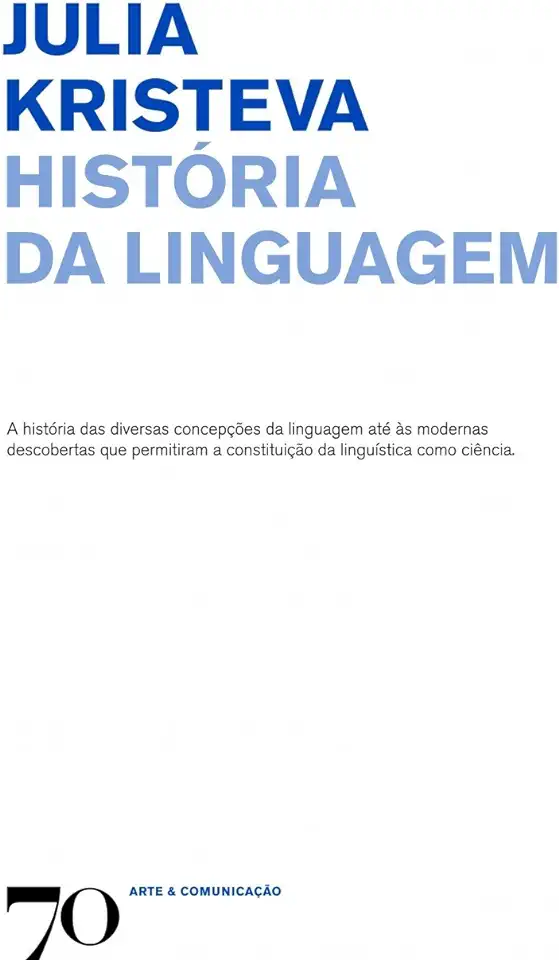
Language History - Julia Kristeva
Language History: Julia Kristeva
An Introduction
In her groundbreaking work, "Language History," Julia Kristeva delves into the intricate relationship between language and history, offering a unique perspective that challenges traditional notions of linguistic development. Kristeva argues that language is not merely a tool for communication, but rather a dynamic force that shapes our understanding of the world and our place within it.
The Interplay of Language and History
Kristeva's analysis of language history is rooted in the belief that language is not a static entity, but rather a constantly evolving phenomenon that is deeply intertwined with the social, cultural, and political contexts in which it is used. She argues that language is not simply a reflection of these contexts, but rather an active participant in their construction and transformation.
The Subject in Language
One of the central themes in Kristeva's work is the concept of the subject in language. She argues that the subject is not a fixed entity, but rather a fluid and constantly shifting construct that is shaped by the interplay of language and history. Kristeva's analysis of the subject draws on insights from psychoanalysis, linguistics, and philosophy, offering a multifaceted understanding of the complex relationship between language and the individual.
The Politics of Language
Kristeva also explores the political dimensions of language, arguing that language is not a neutral medium, but rather a site of power and struggle. She examines how language can be used to construct and maintain social hierarchies, as well as how it can be used to resist and subvert these hierarchies. Kristeva's analysis of the politics of language provides a critical lens for understanding the role of language in shaping social and political realities.
Language and the Unconscious
Kristeva's work is also marked by her exploration of the relationship between language and the unconscious. She argues that the unconscious is not simply a repository of repressed desires and memories, but rather a dynamic force that shapes our conscious experience of the world. Kristeva's analysis of the unconscious draws on insights from psychoanalysis and linguistics, offering a unique perspective on the complex interplay between language and the psyche.
Conclusion
"Language History" is a seminal work that has had a profound impact on the fields of linguistics, literary theory, and cultural studies. Kristeva's innovative approach to language history challenges traditional notions of linguistic development and offers a new understanding of the complex relationship between language, history, and the individual. This book is a must-read for anyone interested in the study of language and its role in shaping our world.
Enjoyed the summary? Discover all the details and take your reading to the next level — [click here to view the book on Amazon!]